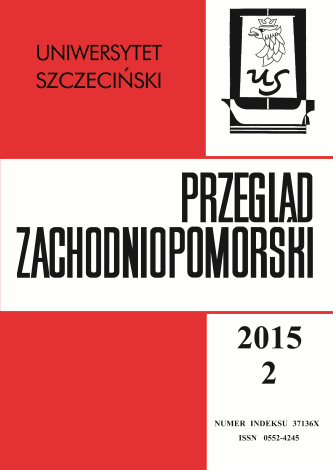Współpraca transgraniczna w ramach euroregionu Pomerania
Cross-Border Cooperation in the Euroregion ‘Pomerania’
Author(s): Małgorzata Kamola-CieślikSubject(s): Politics / Political Sciences, Politics, International relations/trade
Published by: Wydawnictwo Naukowe Uniwersytetu Szczecińskiego
Keywords: cross-border cooperation; borderlands; euroregion; subversion of stereotypes; aid funds
Summary/Abstract: The paper is an analysis of the origin of the Euroregion ‘Pomerania’ and its activityin 1996–2013. The Euroregion ‘Pomerania’ is a formalised cross-border or transnationalcooperation between three contiguous regions located in Poland (Zachodniopomorskie),Germany (Mecklenburg-Vorpommern) and Sweden (Skania). The analysis includes thedevelopment of the links between the three countries in different aspects: economic,social, touristic and infrastructural, and the forms and effects of the cooperation withinthe Euroregion.The paper seeks the answers to the following questions: (1) What forms of cross-bordercooperation in the Euroregion ‘Pomerania’ were the most important ones? (2) Whatwere the benefits of the cross-border cooperation for the Euroregion? (3) What were thedifficulties in the cooperation within the Euroregion ‘Pomerania’? and (4) Why did theyarise?The analysis shows that the cross-border cooperation between contiguous regionsin Sweden, Germany and Poland has brought benefits of various kinds – economic,cultural, touristic and infrastructural – to all the three countries and it has decreased thedisproportion in the level of development between the areas belonging to the Euroregion‘Pomerania’. The cross-border cooperation has brought the participants closer (especiallythe Poles and the Germans), and the communities of the Euroregion ‘Pomerania’ havestriven to break down the stereotypes and international barriers. The developmentof the relations between the participating regions have been fraught with difficulties; theyresulted from linguistic barriers and from a lack of basic knowledge about the historyand culture of the neighbouring countries and about the social processes that were takingplaces there. The Swedish partner has been less active in comparison with the other twopartners.
Journal: Przegląd Zachodniopomorski
- Issue Year: 30/2015
- Issue No: 02
- Page Range: 47-66
- Page Count: 20
- Language: Polish

